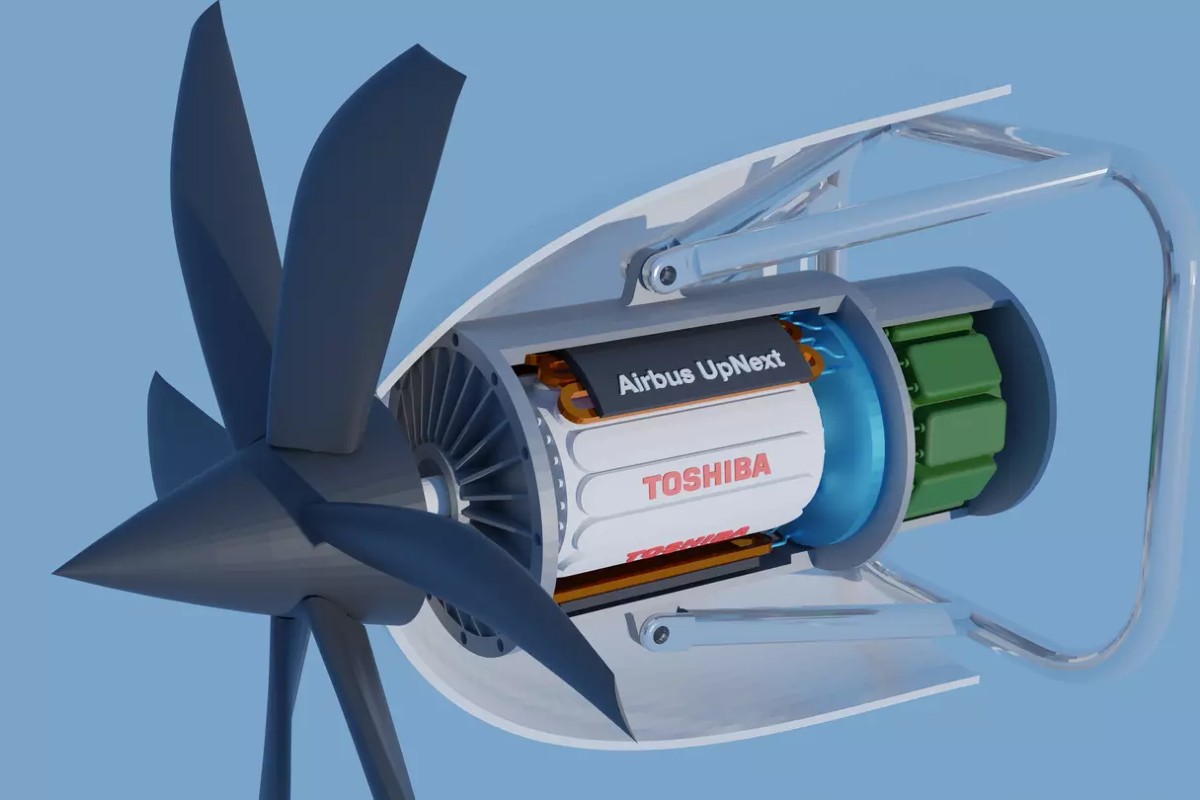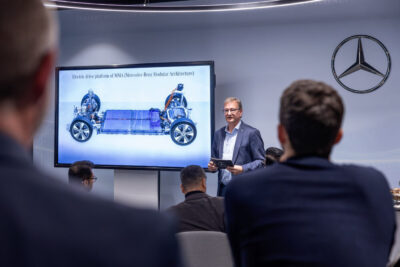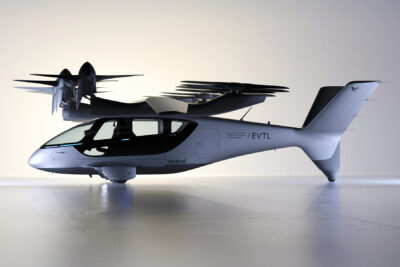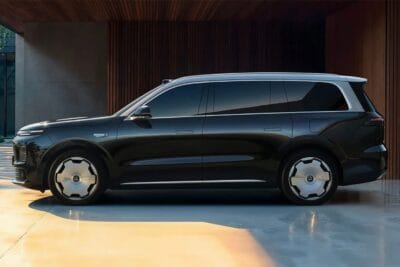Airbus and Toshiba design superconducting engine for H2 aircraft
The collaboration in the field of H2 aircraft is to unfold between two Group subsidiaries – namely Airbus UpNext, a wholly-owned Airbus company, and Toshiba Energy Systems & Solutions Corporation, the energy division of the Toshiba Group. The aim is to exchange and “mutualise experience on superconducting technologies for future hydrogen-powered aircraft,” according to an accompanying press release.
The aim of ‘superconductivity’ is to ensure that electricity flows through an electrical conductor largely without resistance when it falls below a certain temperature. According to the cooperation partners, this approach can be transferred very well to H2 aircraft if they use liquid hydrogen at a temperature of -253°C not only as a fuel, but also for efficient cooling of the electric drive systems. “Cryogenic technology could allow for a nearly unimpaired power transmission within the electric systems of the aircraft, significantly improving their energy efficiency and performance,” they add.
According to Grzegorz Ombach, Airbus Senior Vice President and Head of Disruptive R&T, the partnership with Toshiba offers the opportunity to overcome the limitations of today’s partially superconducting and conventional electric motors. “Partnering with Toshiba presents a unique opportunity to push beyond the limitations of today’s partial superconducting and conventional electrical motors. Through this collaboration, we aim to deliver a breakthrough technology that could unlock new design possibilities, in particular for Airbus’ future hydrogen-powered aircraft. This partnership represents a natural and essential step in advancing superconducting motor technology to meet the needs of the aerospace industry.”
Tsutomu Takeuchi, Corporate Officer of Toshiba, responsible for the Power Systems Division and Director of Toshiba Energy Systems & Solutions Corporation, said that both partners are aware of the enormous potential of superconducting technologies in shaping the future of aircraft and decarbonising the aviation industry. “We are confident that our collaboration with Airbus will play a key role in advancing next-generation technologies for the aerospace sector.”
The partners aim to jointly develop a superconducting motor with an output of two megawatts. Airbus states that it has been endeavouring to test superconducting technologies for ten years. The company has already developed a demonstrator for testing a superconducting electric drive system. Toshiba, for its part, has been researching and developing applications for superconducting technology for almost half a century and claims to have presented the prototype of a two-megawatt class superconducting motor for mobility applications in June 2022.





0 Comments